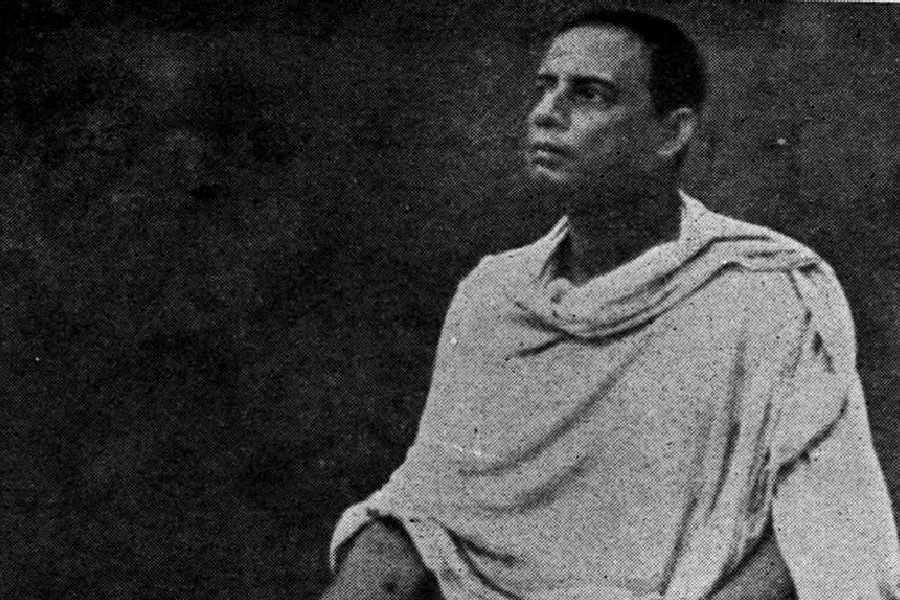Book: THE DISINHERITED: THE POLITICS OF CHRISTIAN CONVERSION IN COLONIAL INDIA
Author: Mou Banerjee
Published by: Harvard
Price: Rs 699
The title is a giveaway. It explicitly references the disempowerment suffered by Christian converts in India in the 19th and the 20th centuries as a consequence of the complex mechanisms of conversion under conditions of colonial rule and the ripples this created in conservative Hindu society. Based on a range of sources — official, European, and vernacular Bengali material — the book is an invitation to engage with the existential predicaments of identity and self-definition that an act of conversion produced at an individual and collective level. It is elegantly written, thoroughly researched, and is an important exercise in tracking the genealogies of religious marginalisation. While handling apparently well-trodden themes in Indian history, such as those of Christian conversion, missionary activity, and indigenous response to them in Bengal, it brings in an original and innovative perspective involving the introduction of a heuristic category like that of apologia whose deployment became key to the making and the standardising of a political identity based on religious faith in India. Analysing adversarial religious issues or what she calls “apologetics”, the author argues that these were incapable of engaging with reasoned theological debates and thus created a template of suspicion and animosity. The extent and the range of these apologist debates were wide-ranging, from the elite to the vernacular public sphere, and were instrumental in transforming the Indian public sphere and the
modern Indian self whose private faith and belief closely impacted their political, legal and social belongings within the emerging nation and continued to cast their long shadow thereafter.
The book is structured around five chapters. The first two look at the emergence and the ramifications of modern apologetics in colonial India, the contours of which were shaped by the growing influence of missionary pedagogy that seemed to seduce large numbers of young, middle-class Bengali men inviting passionate protests and denunciations. The consequence of public debates (in written form) was a sharpened awareness of religious affiliations and a clarification of tradition as its bearers saw it. The pervasiveness of apologetics around religion spilt over into the domain of law, leading to contestations over inheritance and establishing the primacy of Hindu law in disputes among family members especially when conversion happened. The third chapter highlights this with reference to the celebrated Great Tagore Will Case. The final chapters look at conversions in the rural context, at the violence that rural converts in East Bengal faced at the hands of British planter landlords and their Indian associates and at apologetic pamphlets authored by Munshi Meherullah who spearheaded non-elite Muslim resistance to conversion. In sum, Bannerjee tracks key moments in the preparation of the ground that helped in the articulation of identity around faith which was defined, refined and continually expanded in a modern public sphere.
These developments subsequently intersected with the growing anti-colonial mass movements in the wake of the swadeshi andolan that deployed the idea of a united, public and inalienable Hindu front in politics with serious consequences for the individual and the collective levels. We know, for instance, how the emphasis on Hindu symbols and cultural idioms during swadeshi alienated vast sections of Muslim and Namasudra populations. At an individual level, something that this book brings out poignantly was the crisis of the soul as exemplified in the experiences of Brahmabandhab Upadhyaya. Upadhyaya was a convert to Catholicism but assiduously upheld a public identity as a Hindu nationalist. His career, erased in mainstream accounts despite the fascination his contemporaries espoused, is vividly brought out by the author in one of the finest chapters of the book.
The book is a powerful exposition of the processes of marginalisation of converts through the arms of law and social power. While it navigates deftly the complexities of the Great Tagore Will Case by analysing the ways in which the Lex Loci Act was bypassed by the invocation of Hindu custom, to the detriment of Gyandendramohan Tagore (1826-1890) who embraced Christianity and faced disinheritance, it also foregrounds the significance of Muslim-Christian apologetics in Eastern Bengal, thereby nuancing the understanding of conversion politics in the 19th and the 20th centuries. In analysing apologist debates that emerged in the adversarial relationship between evangelism and Indian actors, mostly but not exclusively Hindu, it offers an excellent genealogy of the politics of religion in the 19th century and its shaping of the modern Indian self in the 20th.










